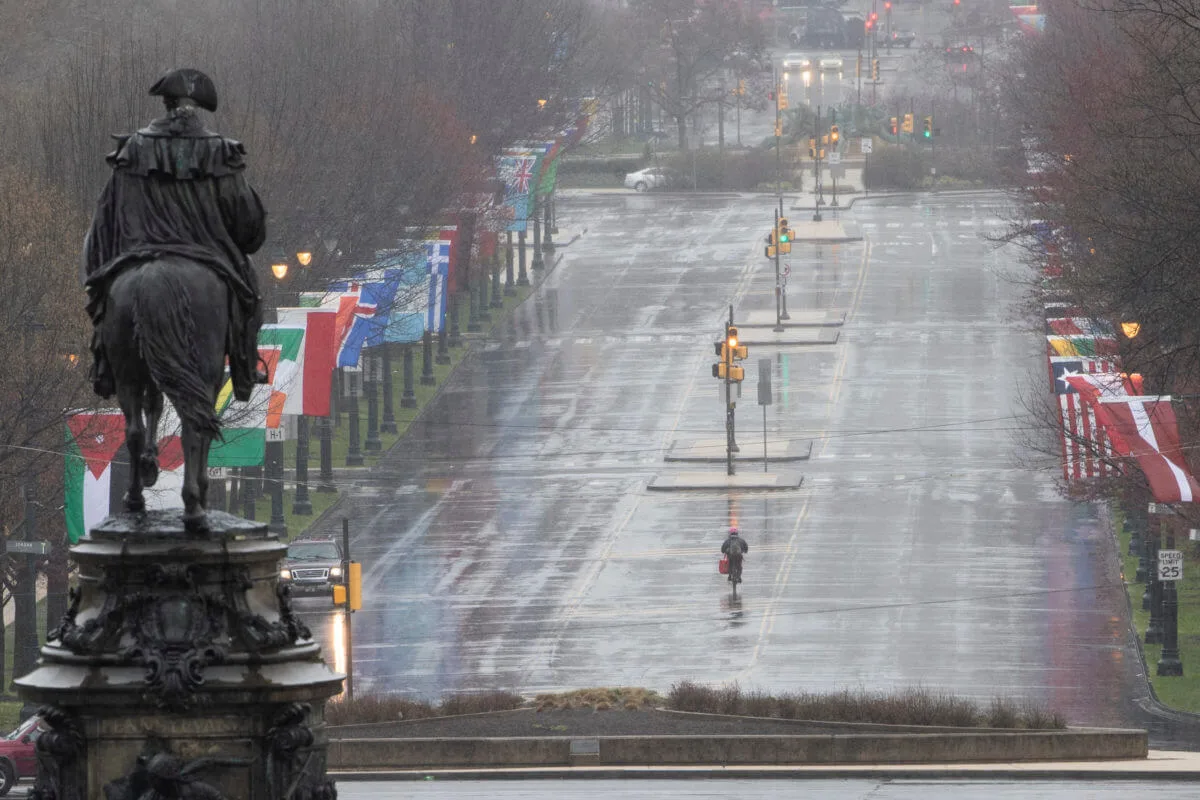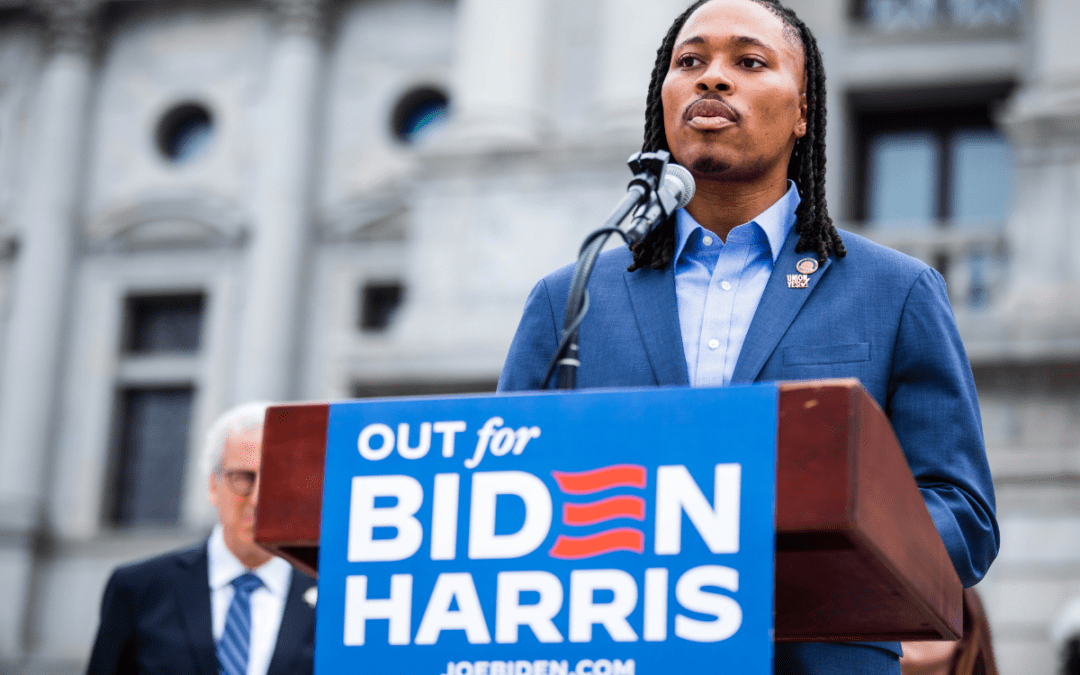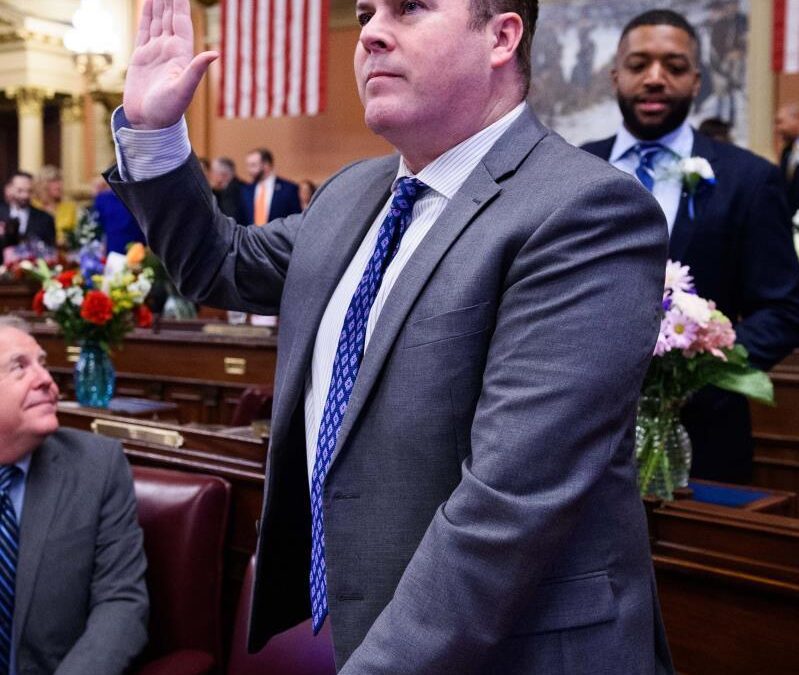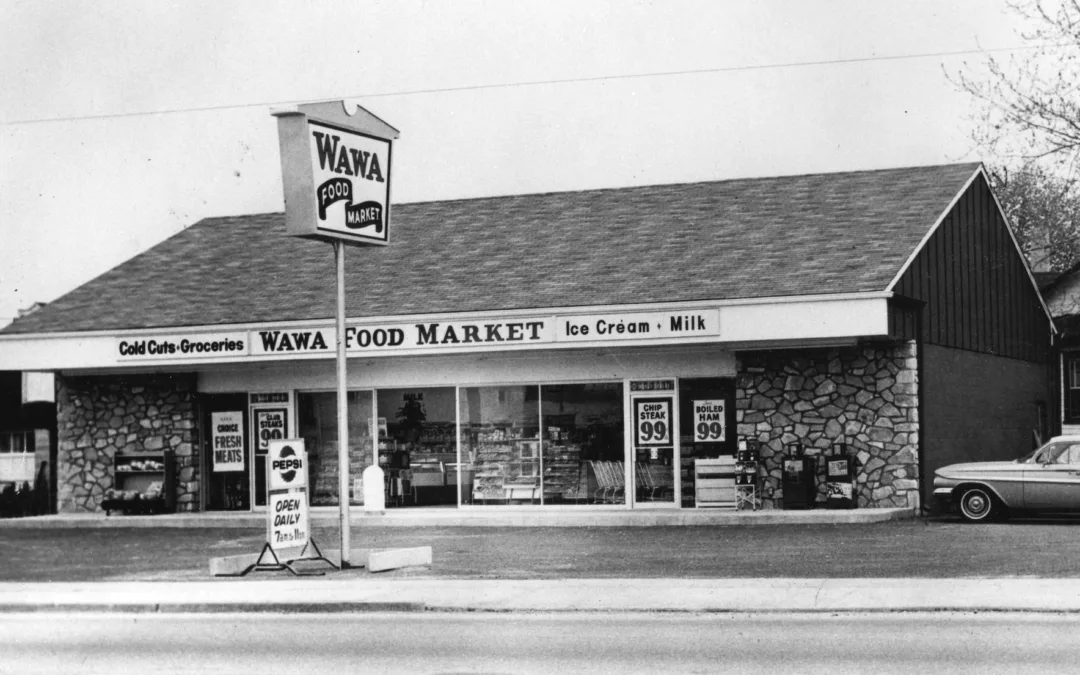
AP Photo/Matt Rourke
Pennsylvania is the latest state to postpone its presidential primary because of the outbreak. As of Friday, 19 counties were under a stay-at-home order.
When it comes to campaigning for the Pennsylvania primary, coronavirus “has changed everything,” said Jennifer Lugar, who’s in a six-way race for the 154th District in the Pennsylvania House of Representatives.
Lugar, a first-time candidate for the House and a member of Borough Council in Jenkintown since 2017, said the pandemic has forced the cancellation of all of her fundraising and canvassing events, so she’s pivoted to a mostly digital strategy. This week, she and other candidates in her race participated in a forum hosted by the NAACP; it was supposed to be an in-person event that instead was held on Zoom and streamed on Facebook.
Next week, Lugar, an alumna of Emerge PA (which trains Democratic women to run for office) is one of two beneficiaries of an online live fundraising event hosted by another Emerge member, themed around a cocktail pajama party.
One-on-one phone calls are also more important now. “Since many people have time on their hands,” she said, “it is an opportunity to connect with community influencers and voters more deeply.”
Lugar will now have more time to do that: The Pennsylvania primary scheduled for April 28 has been postponed for five weeks because of the pandemic. Gov. Tom Wolf signed legislation on Friday, which was approved by both chambers of the state legislature and moved the primary to June 2.
The law, which also allows for polling places to be combined—an especially important measure as some are located within nursing homes—and for election workers to report to the polls earlier than usual to keep traffic moving.
In total, 19 Pennsylvania counties have been placed under a stay-at-home order to tighten restrictions and mitigate the spread of the disease in the Keystone State. By Friday, Pennsylvania has reported more than 2,200 cases, with 22 deaths.
With widespread closures and millions of Pennsylvanians being urged to avoid travel, holding the election in just a month was becoming less feasible.
Brittany Crampsie, spokesperson for the Pennsylvania Democrats, told COURIER that Minority Leader Sen. Jay Costa (D-43) believes moving the primary was the “right thing to do at this point.”
“A June date will ensure that polling locations are safe, and voters can go in person without it being a health hazard,” she said.
More than a dozen other states have delayed voting because of the pandemic. The Democratic National Convention remains set for mid-July; according to rules of the Democratic National Committee, June 9 is the latest date states can hold their primary elections, and they must certify the results three weeks later.
RELATED: Is $400 Million Enough to Protect Elections From Coronavirus Disruptions? One Expert Says No.
The Board of Elections and Office of Voter Services in Montgomery County, one of Pennsylvania’s hardest-hit counties—which has reported 374 positive cases, second only after Philadelphia—had been moving ahead with plans in case the April date remained: They purchased sanitizer, gloves, and disinfectant wipes, and were putting together protocols for proper sanitization of polling locations several times a day, said Senior Assistant Solicitor John Marlatt. All measures will remain in place for the June 2 date.
The county has also begun encouraging voters to apply for a mail-in or absentee ballot to reduce headcount at polling places, a move being echoed by Democratic leadership, Crampsie said. Last year, the state legislature overhauled Pennsylvania’s election rules, allowing residents to vote by mail without having to provide a reason.
“[The legislation] guarantees their vote will be counted regardless of the date of the election,” Crampsie said. Voters have until one week before the election to apply for a mail-in ballot and can return it to their local county elections office through 8 p.m. on election night (click here to start the application). Absentee ballots, reserved for those with a disability or illness or who will be out of their municipality on Election Day, are still offered as an option and must be returned one week before the election.
“Our stance remains that the safest way to conduct this election is via mail-in ballots,” Marlatt said, “and we will continue to advocate for the state implementing an all-mail election for the primary.”
Patrick Christmas, policy director at Committee of 70, a nonprofit advocate for good government based in Philadelphia, predicted record numbers of voters abandoning in-person polls for mail-in options.
“Especially given the health concerns,” he said, “we encourage voters to apply now for their absentee or mail-in ballot.”
As Pennsylvanians deal with disruptions to work, school, and other schedules, the date change means the state needs to undertake a significant awareness-raising effort, Crampsie said.
“We need it to educate voters on all of the election changes and mail-in ballot voting options to vote safely from home or send their ballot in ahead of time given the unpredictability of work schedules right now,” she noted.
Election directors have their hands full preparing for the election, Christmas added, so now’s the time for civic groups and businesses to “step up big time on voter awareness.” The Department of State’s Ready to Vote toolkit is a good model for such organizations, as well as local governments, to use in the coming weeks.
“The crisis has completely upended campaign season, like nothing we’ve ever seen,” he said, noting first-time candidates and those facing incumbents may be at a disadvantage, as they’re losing valuable face time with voters. “Like voters and election officials, candidates have no choice but to adjust as best they can to these unprecedented circumstances.”
Politics

Malcolm Kenyatta makes history after winning primary for Pa. Auditor General
State Rep. Malcolm Kenyatta, who was first elected to the state House in 2018, won the Democratic nomination for Pa. Auditor General and will...

Biden administration bans noncompete clauses for workers
The Federal Trade Commission (FTC) voted on Tuesday to ban noncompete agreements—those pesky clauses that employers often force their workers to...

Philadelphia DA cancels arrest warrant for state Rep. Kevin Boyle on eve of Pa. primary
Philadelphia District Attorney Larry Krasner said a detective had sought the warrant against Boyle, a Democrat whose district includes a section of...
Local News

What do you know about Wawa? 7 fun facts about Pennsylvania’s beloved convenience store
Wawa has 60 years of Pennsylvania roots, and today the commonwealth’s largest private company has more than 1,000 locations along the east coast....

Conjoined twins from Berks County die at age 62
Conjoined twins Lori and George Schappell, who pursued separate careers, interests and relationships during lives that defied medical expectations,...





